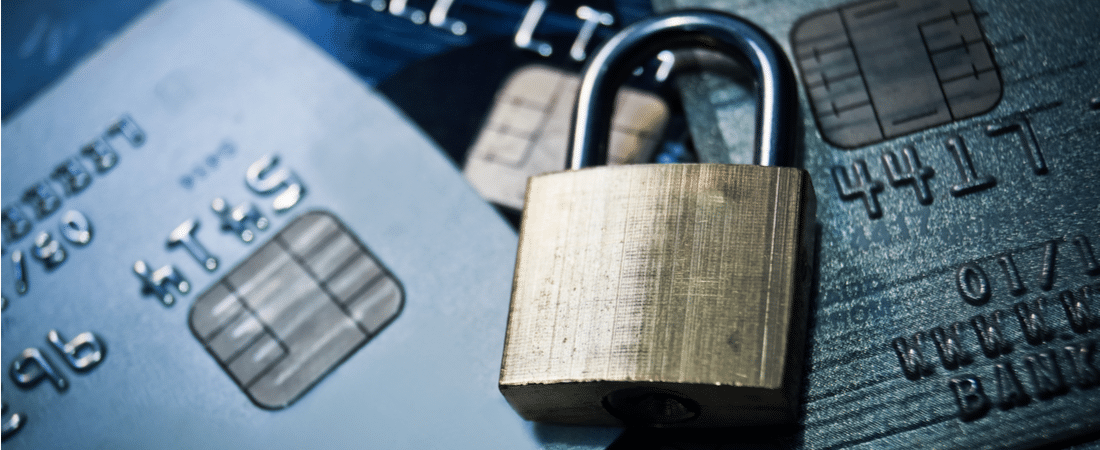How can you help better protect yourself against identity theft? The Coronavirus/COVID-19 pandemic has presented new opportunities for identity thieves and other bad actors to use the stress of the current environment to their advantage. With no concern for your financial well-being, thieves can use stolen information to run up balances on credit cards or rack up debt in your name — potentially damaging credit scores in the process.
While there’s no guaranteed way to avoid identity theft, credit monitoring tools and other measures can help minimize the impact on your credit in the event your information is suddenly compromised.
For the final part of our Credit 101 series, sponsored by Equifax, we’re focusing on all things related to credit monitoring and identity theft. We’ll explore how to better secure your personal information, and look into the options available for affordable credit monitoring to help better protect against potential identity theft.
What Is Identity Theft?
Identity theft can occur when someone gains access to your personal information (your name, address, Social Security number, bank routing number or other financial details) and then uses that information to pose as you for personal gain. This could involve opening up credit or bank accounts in your name, falsely filing your taxes in order to claim your refund, fraudulently claiming your 2020 CARES Act stimulus payment or otherwise receiving benefits that rightfully belong to you.
Potential signs of identity theft include:
- Receiving bills for purchases you did not make or accounts you never established
- Discovering credit card or bank transactions that don’t line up with your purchases
- Sudden, strange withdrawals from your accounts
- Notifications that your tax return was filed when you did not do so yourself
- Calls from collection agencies about unfamiliar debt
How Can I Spot Signs of Identity Theft on My Credit Reports or on Financial Statements?
Credit reports summarize your history of borrowing and paying back debt, so they can be helpful tools for spotting signs of potential inaccurate information that can indicate identity theft.
It’s a good idea to review credit reports and credit scores regularly, so you can more easily spot, unexpected changes. In response to the COVID-19 pandemic, you can now get one free credit report per nationwide consumer reporting agency every week through April 2021 at AnnualCreditReport.com.
Additionally, you can also create a myEquifax™ account to get six free Equifax credit reports. You can also click “Get my free credit score” on your myEquifax dashboard to enroll in Equifax Core Credit™ for a free monthly Equifax credit report and a free monthly VantageScore® 3.0 credit score, based on Equifax data. A VantageScore is one of many types of credit scores.
Anytime you receive one of your credit reports, review it carefully for information that you do not believe accurately represents your past credit behavior. Make sure your personal information is accurate and complete. Also check under the section of your report that lists your accounts to ensure that the payment history, balances and account ages are accurate for each.
Ensure that there are no credit accounts on your reports that you don’t recognize. On the other hand, if an account you expect to see is missing, this is not necessarily cause for alarm. Not all creditors and lenders report information to every nationwide consumer reporting agency, so depending on which report you pull, that information may not have been reported.
In addition to reviewing credit reports for inaccuracies and suspicious behavior, be sure to review your credit card, bank and utility statements often. Look for any purchases you didn’t make, and if you find something you don’t recognize, report it to your bank, utility company or other provider immediately. Identity thieves will frequently test accounts by charging very small amounts, so don’t dismiss seemingly innocuous charges if you really don’t know where they came from.
How Do I Dispute Inaccuracies or Fraud on My Credit Reports?
If you see any information on your credit reports that you believe is incomplete, inaccurate or does not belong to you, reach out to the nationwide consumer reporting agency whose report you’re reviewing to immediately dispute the information.
When you file a dispute, you can generally expect to receive the results of your dispute within 30 days. If the information is found to be inaccurate, your credit reports will be updated, generally within about 30 days.
When you submit a dispute, you may need to provide a driver’s license, account statements or other documentation, so it’s a good idea to prepare any related documentation to support your dispute in advance.
How Can I Help Protect Against Fraudulent Activity on My Credit Reports?
If you see fraudulent activity on your credit reports and believe you may be a victim of identity theft, you may consider contacting the nationwide consumer reporting agencies and asking them to place a fraud alert and/or a security freeze on your credit reports. Both fraud alerts and security freezes are protective measures for your credit files and identity; however, they differ slightly in how they work.
A fraud alert acts as a red flag on your credit reports and encourages lenders and creditors to verify any requests for new credit before issuing it. This makes it more difficult for thieves to open accounts in your name, while still allowing you to apply for credit yourself.
There are two types of fraud alerts you can place on your credit reports: Initial and extended. You may contact any of the three nationwide credit reporting agencies to request a fraud alert.
- Initial fraud alerts remain on credit reports for one year but can be renewed for additional one-year periods or removed whenever you choose.
- If you have a police report that shows you are a victim of identity theft, you are eligible for an extended fraud alert, which remains on credit reports for seven years unless you remove it sooner.
Once you place an alert with one of the reporting agencies, that agency will send your request to the other two. Active duty military members can also place an active duty alert on their credit reports. Active duty alerts last for one year and can be renewed to match the period of deployment. You will also be removed from the credit bureau’s marketing list for prescreened credit card and insurance offers for two years unless you ask to be added back on them.
Both initial and extended fraud alerts allow you to request an additional free copy of your credit reports from the three nationwide consumer reporting agencies within one year of placing the alert.
A security freeze or credit freeze restricts access to your credit report by certain third parties, like lenders and creditors, for the purposes of extending credit. This means that if you’re applying for a new credit account yourself, such as a mortgage or car loan, you’ll need to lift or permanently remove the freeze to allow a credit check.
Security freezes must be placed on credit reports separately at each of the nationwide consumer reporting agencies. Placing a security freeze on your Equifax credit report will restrict access to it by certain third parties but will not affect your credit reports anywhere else.
How Else Can I Better Protect My Personal Information?
There are no guaranteed ways to prevent identity theft; however, taking certain steps may help mitigate your overall risk.
First, aim to keep all personal data to yourself whenever possible, including your home address, credit card information, Social Security number and any other identifying information. Be wary when asked for any personal data, and only share with sources you absolutely trust.
You should also focus on creating secure passwords, using a combination of numbers, letters, punctuation and other symbols. Whenever possible enable two-step verification on your online accounts — including social media sites, streaming services and your favorite retail accounts — but especially your email, which can provide access to many of these accounts in one place. You may also consider a password manager app to generate and keep track of passwords that are difficult for thieves to crack.
Finally, to stay on top of your credit history to the best of your ability, consider investing in a monitoring service. Credit monitoring can help alert you to activity on your credit files so you can respond quickly if needed.
It’s important to check your credit reports regularly to ensure the information on them is accurate and complete. Identity theft can happen to anyone, regardless of where they are in their financial journey. Equifax is committed to helping consumers at a price that works for them by launching two new, low-cost credit monitoring options — Equifax Credit Monitor™ and Equifax Complete™.
Equifax Credit Monitor offers consumers multiple features including credit monitoring alerts, all for only $4.95/month. Features include:
- Daily access to your VantageScore3.0 credit score based on Equifax data (VantageScore is one of many types of credit scores).
- Daily credit score monitoring
- Daily access to your Equifax credit report
- Equifax credit report monitoring with alerts
- Equifax credit report lock
- Equifax blocked inquiry alerts
- Score Tracking
To subscribe, click here.
Equifax Complete is designed for consumers looking for a single product that offers a mix of credit monitoring and identity theft protection for only $9.95/month. Features include:
- Daily access to VantageScore 3.0 credit scores based on Equifax data
- Daily credit score monitoring
- Daily access to your Equifax credit report
- Equifax credit report monitoring with alerts
- Equifax credit report lock
- Equifax blocked inquiry alerts
- Automatic Fraud Alerts, which automatically renew your initial one-year fraud alert
- Score Tracking
- Identity Restoration
- Up to $500,000 in identity theft insurance (to help cover certain out-of-pocket expenses)
To subscribe, click here.
It’s impossible to totally prevent identity theft: Thieves are always on the lookout for new ways to take advantage of consumers. However, education and credit monitoring can play important roles in helping you better protect yourself against fraud and identity theft. Taking precautions and staying vigilant against the signs of identity theft can help reduce potential impact to your credit history, credit scores and other elements of your financial life.
This article is part of our Credit 101 series, where we break down information about credit reports and credit scores. Read more of the series here:
Credit 101: What’s in Your Credit Reports







Leave A Comment